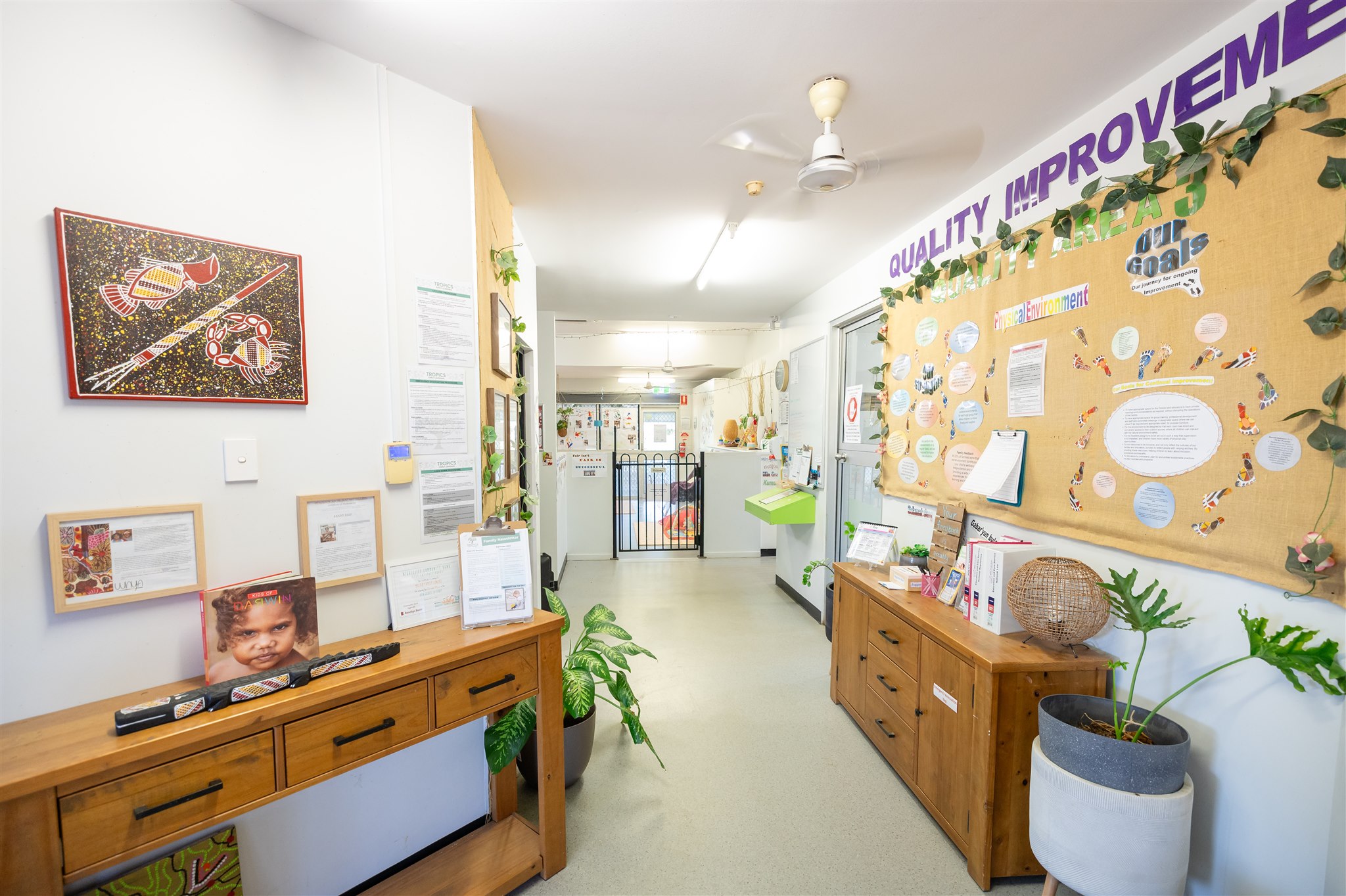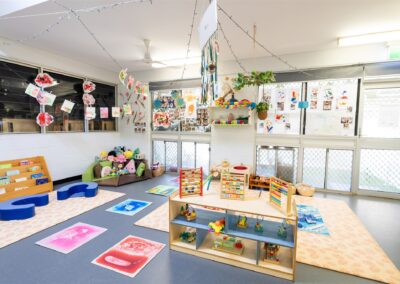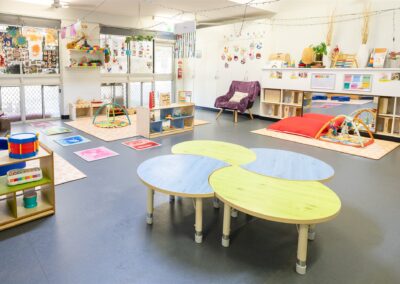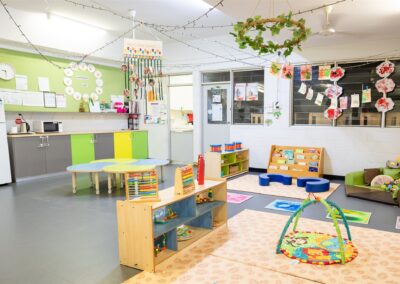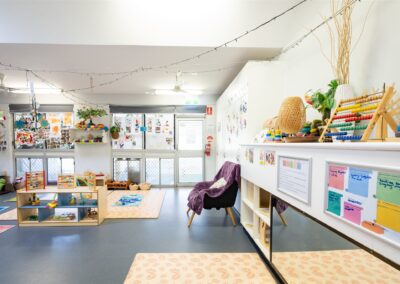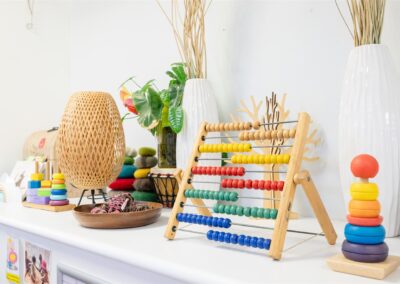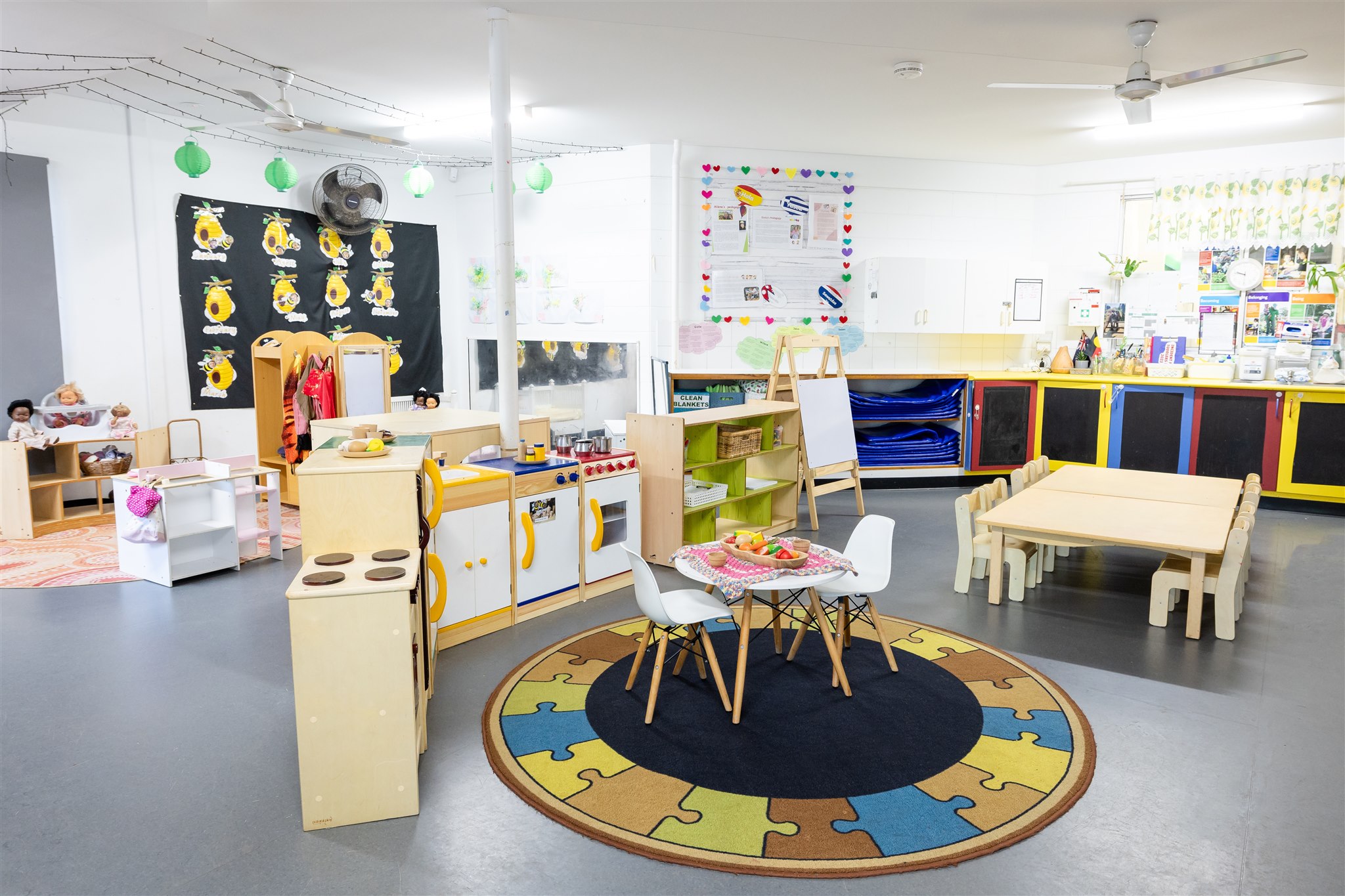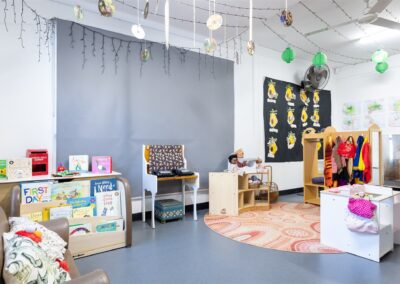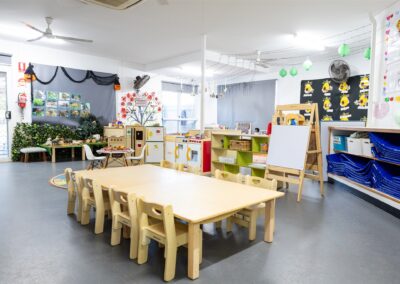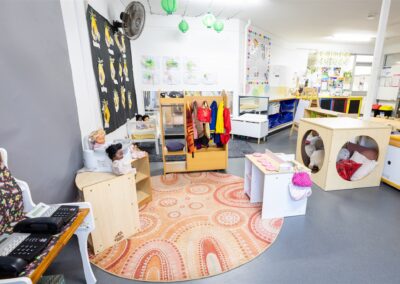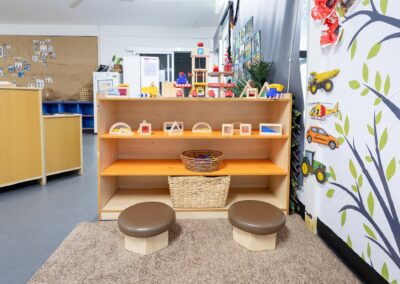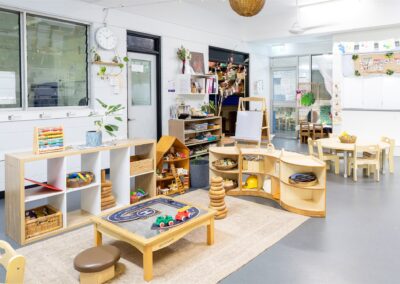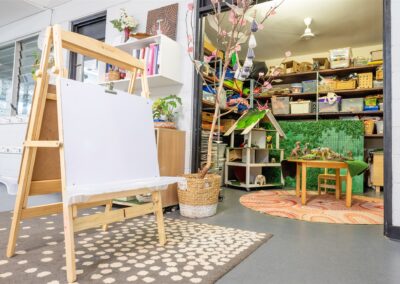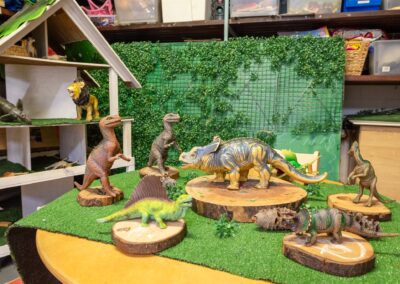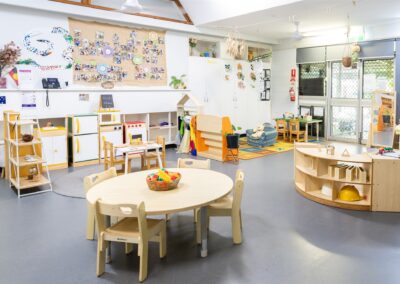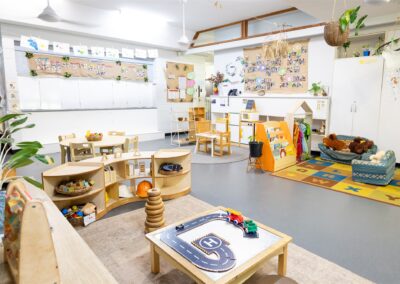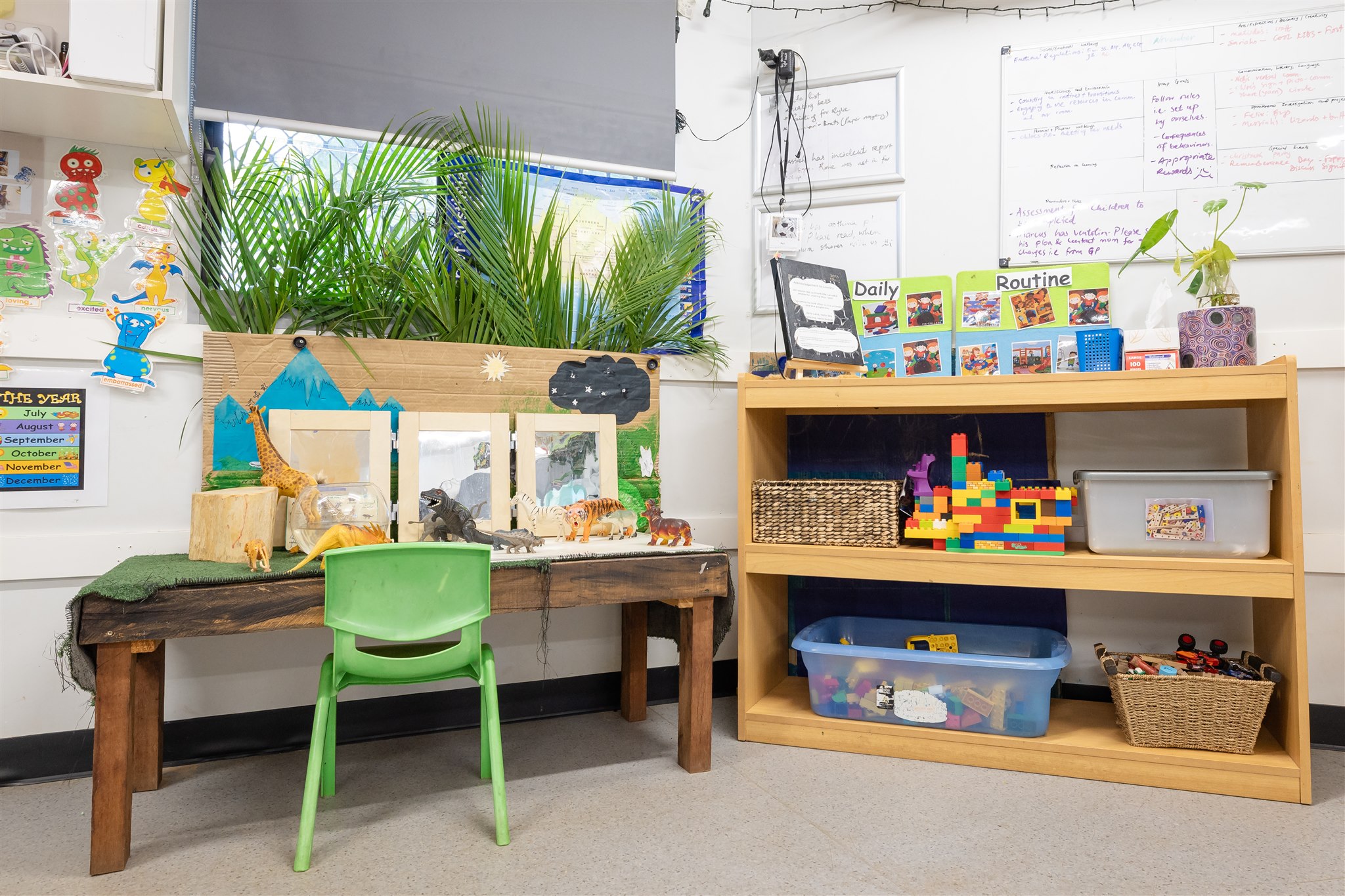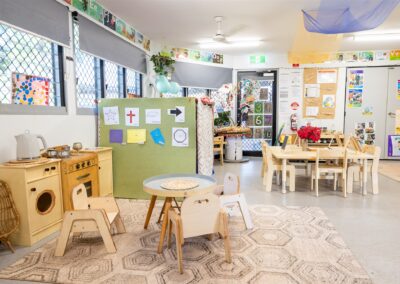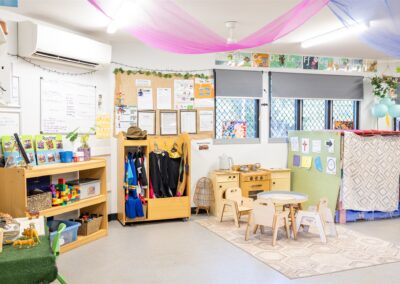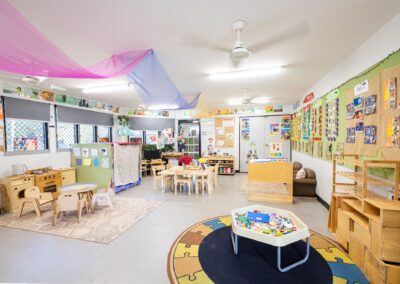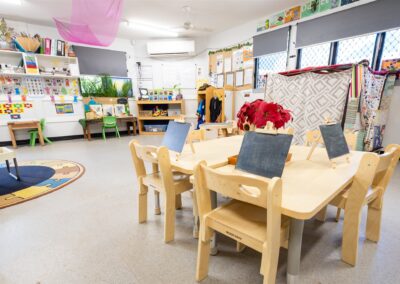LEARNING ENVIRONMENTS
OUR LEARNING ENVIRONMENTS
We believe that play provides opportunities for children to learn as they discover, create, improvise and imagine. When children play they have opportunities to develop social groups, test out ideas, challenge other peoples way of thinking and build new understandings.
Play-based learning:
- allows for the expression of personality and uniqueness
- offers opportunities for multimodal play
- enhances thinking skills and lifelong learning dispositions such as curiosity, persistence and creativity
- enables children to make connections between prior experiences and new learning and to transfer learning from one experience to another
- assists children to develop and build relationships and friendships
- develops knowledge acquisition and concepts in authentic contexts
- builds a sense of identity
- strengthens self-regulation, and physical and mental wellbeing.
Babies
6 Weeks – 18 Months
The programs in our baby’s room have a strong focus on helping children to build secure trusting relationships, utilising the principles of the Circle of Security. We believe that babies who develop secure attachment relationships will begin to thrive in all other areas of development, and their early emotional, social and physical experiences will affect their future resilience and wellbeing, and the relationships they form with others.
We believe that routine times are a wonderful opportunity for babies to learn, as these are times to develop bonds, to sing and talk with individual babies throughout nappy changes, mealtimes, bottle feeding, rest times. In this way we nurture emotional and social wellbeing
Babies learn a lot about the world around them through sensory learning – taste, sight, touch, hearing and smell, and as such, we incorporate a lot of sensory experiences in our educational programs, encouraging hands on learning and exploration.
Toddlers
18 Months – 2 1/2 Years
This is an age where children are finding independence, beginning to form relationships with peers, and beginning to participate and play in groups. They have a strong curiosity of the world around them, and enjoy active participation and discovery in all that they do. Our programs in the Toddlers room have a strong focus on promoting self help skills, supporting the children as they learn to do more things for themselves, such as toileting, dressing, feeding.
This is also the age where children go through the stage of everything belonging to them and not wanting to share, where they begin to display some very strong emotions that they don’t really understand. Our educators support children, and guide them to begin to learn to understand their emotions, and those of others, to develop social and emotional wellbeing, and learning to regulate their own emotions and behaviors.
We support the children’s developing language and communication skills, incorporating different experiences that will promote communication, and verbalization, encouraging them to verbalise their needs, and responding appropriately to cues and signs.
We also provide experiences that challenge our children’s physical skills, helping them to become more competent in their abilities, as they explore their environment.
Kindy
2 1/2 Years – 3 1/2 Years
This is an age where children are displaying increased language development and communication, and increased self help skills.
We aim to strengthen relationships and guide children as they continue to learn to manage their emotions and interactions with others, encouraging them to not only consider their own needs and wants, but also the needs and wants others, learning to take turns, share space and work towards a common goal. When children are involved in engaging experiences that promote positive interactions and communication they can learn to advocate for their needs and nurture meaningful relationships with peers. Our programs promote hands on investigation and learning, encouraging children to cooperate, and function in small and large group situations.
Preschool
3 1/2 Years – 5 Years
Our Early Childhood Teacher develops and implements a high quality, Preschool Program, promoting the value of collaborative learning and problem solving, with a strong focus on children’s interests, community activities, and natural environment.
Our preschool program is guided by the Early Years Learning Framework, and the NT Preschool Curriculum, which has a stronger focus on children aged 3 ½ to 5 years of age. We focus on ‘school readiness’ to support children in their transition to a formal school setting.
What is school readiness?
‘School readiness’ is a measure of the knowledge, skills and behaviours that enable children to participate and succeed in school. We see school readiness as the development of the whole child – their social and emotional skills, physical skills, communication skills and cognitive skills.
Our focus on supporting children for school readiness is:
Emotional maturity – some ability to regulate their emotions and cope with separation from parents/caregivers. To function with minimal adult contact in large groups and form positive relationships with their educators and peers.
Communication – able to listen and follow basic instructions, communicate with words, speak clearly and respond appropriately when spoken to. To be able to communicate needs appropriately, and display basic numeracy and literacy skills.
Social skills – have the ability to share, take turns, get along with others, sort out problems, follow rules, cope with stress of new situations and new learning tasks, ability to play solo and with other children, and exhibit pro-social behaviours
Independence – the basic skills to manage needs their own needs without adult supervision, use the toilet independently, wash their hands, dress themselves, open and unpack their lunch box and feed themselves.
Physical Health and Wellbeing – ability to climb, throw and catch a ball (gross motor skills), cut with scissors, grip and draw with pencils / crayons (fine motor skills), able to sit, turn pages in a book, build with blocks.

